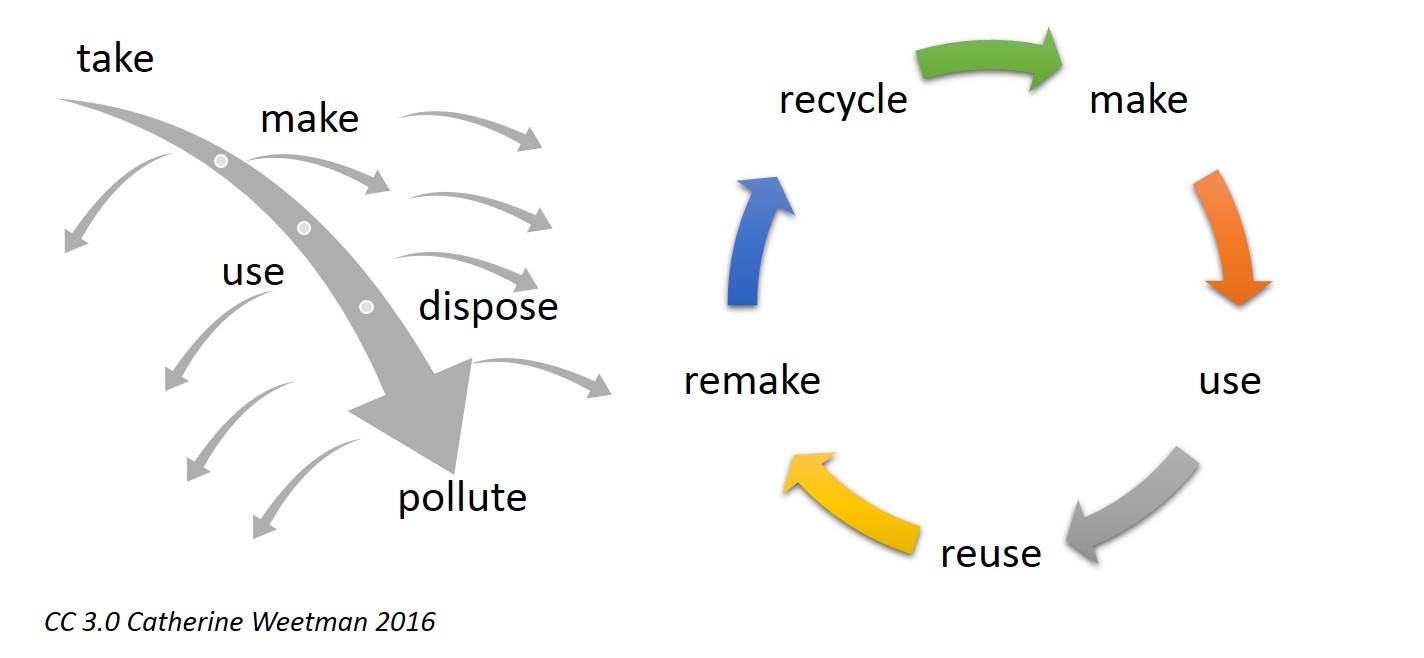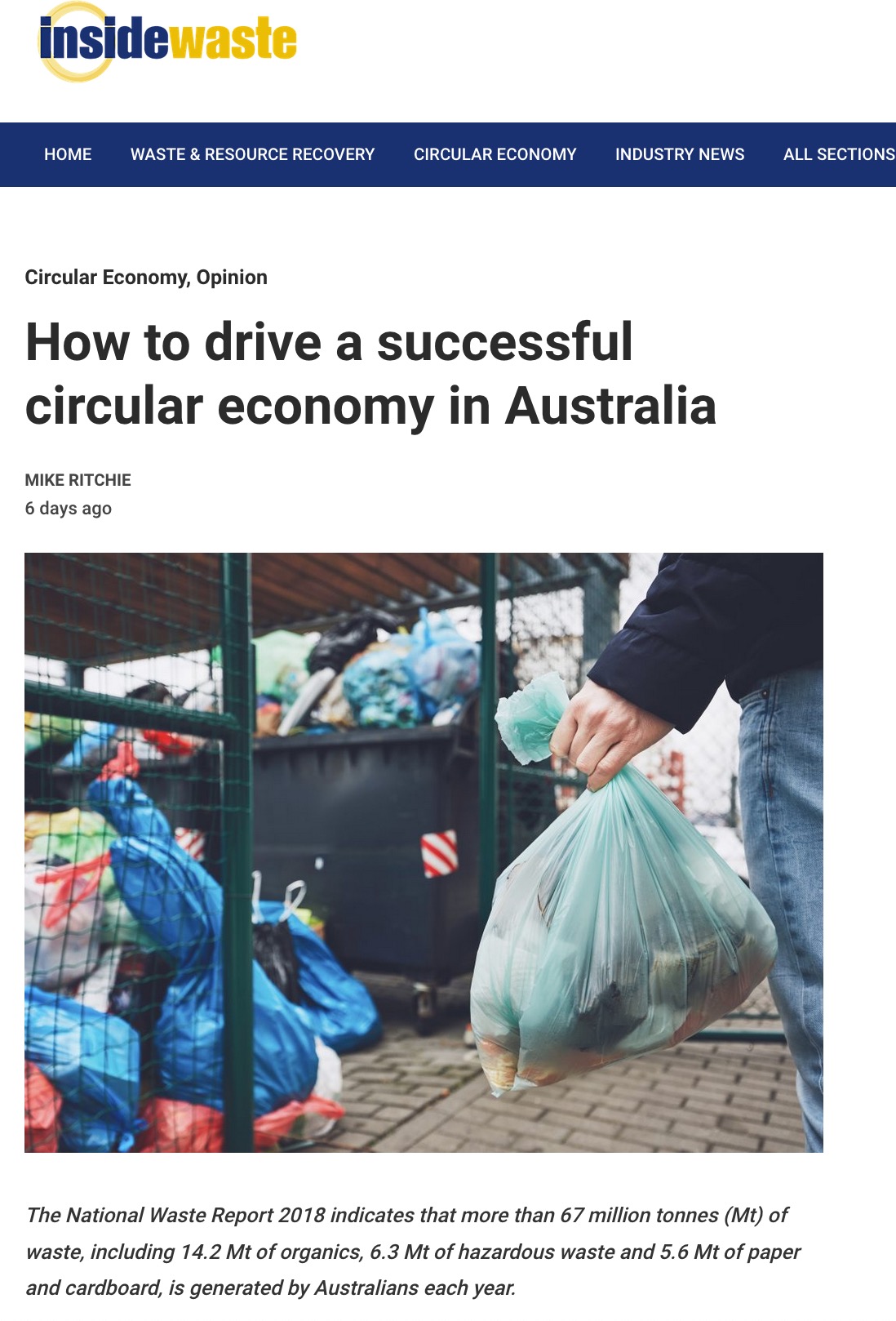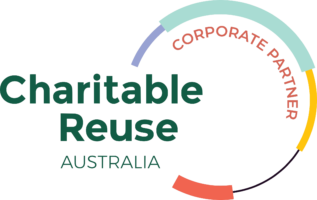Driving a circular economy
By Mike Ritchie, MRA Consulting Group
Australians landfill 2,500 tonnes of waste per hour, every hour, of every day, 365 days a year.

We generate 6,500t/hour and recycle the difference of about 60%. That puts us at the top of the table in waste generation, and middling on the recycling comparison table of developed economies.
We could do so much better with a little bit of leadership and bravery. Almost all of the 21 million tonnes per year we send to landfill is mixed unsorted household and commercial waste.
We know how to sort it but we can’t make the economics work. Landfill can outcompete recycling every day for mixed waste.
So, what do we do?
If we want more recycling, then as a country we need to demand more action from the government (State and Local) and businesses, and through them households, consumers and individuals.
The bottom line is coffee cup recycling, plastic bags bans and prohibitions of party balloons are a creative start but they will make almost zero difference to rates of landfill. We need to deal with the problem of sorting and separating mixed waste in a structural way. We also need to encourage more source separation.
To put the scale of the problem into stark relief, all plastic bags sold in Australia per year represent just 0.12% of waste to landfill by weight. One thousandth of the landfill waste stream. So even if we banned all single use plastic bags (which we should- they are a litter problem), we would still landfill 99.9% of what we are landfilling today.
So, where should we focus?
Organics (food, garden waste, timber and cardboard) represent over 50% of landfilled waste. It also contributes 3% of Australia’s total greenhouse gas emissions. If we diverted all organics from landfill into compost, we could supply over 7 million tonnes of compost per year to Australia’s farmers – lessening the effect of this crippling drought and helping to rebuild degraded soils.
That is where we need to start. Recycling organics is the simplest, fastest and most effective action to drive a circular economy that we could do today.
Tweet
How, I hear you say?
Here is a list of what other countries have done:
- 3-bin collections at homes; food and garden, recycling and garbage.
- Compulsory food collection from large food generators (food courts, restaurants, commercial kitchens).
- Banning unprocessed organics from landfill or requiring processing of all organic streams.
- Taxing or pricing organics disposal to landfill.
- Subsidising separated collection of organics.
- Building processing technology to process separated organics (usually compost or anaerobic digestion) or MBT for unseparated streams.
- Leave it to residents/consumers/households to do small things voluntarily.
There is no need for rocket science. The mechanisms are known. But we need Government to act. You and I as individuals and consumers can do a bit but not the big actions listed above. We can do number 7 and we should.
But actions 1-6 are up to Government, to set the price and regulatory settings to encourage investment and job creation moving big tonnes to composting and anaerobic digestion.
The next Meeting of Environment Ministers (MEM) is in November 2019. We need to ensure MEM addresses organics amid the myriad of other waste issues taking up their attention.
This article has been published by the following media outlets:




